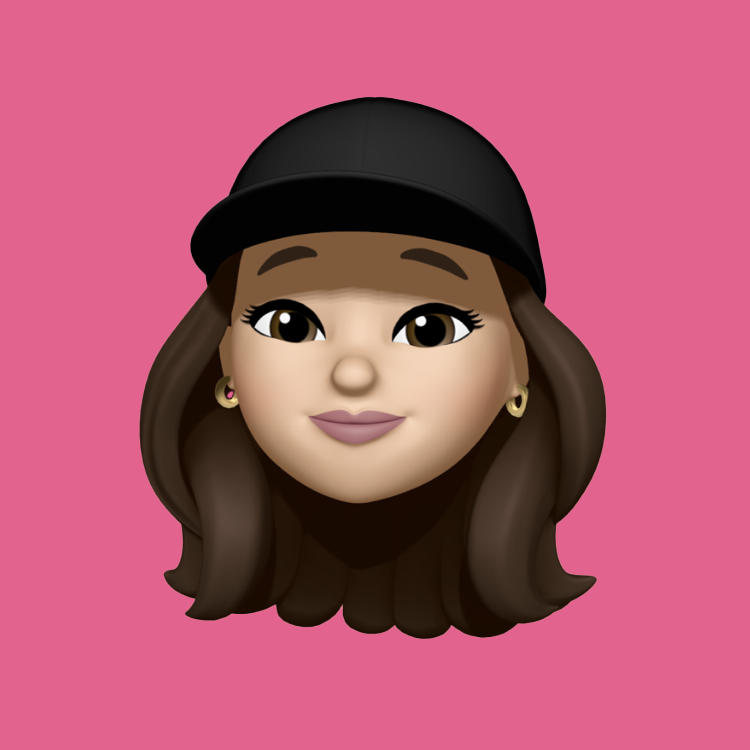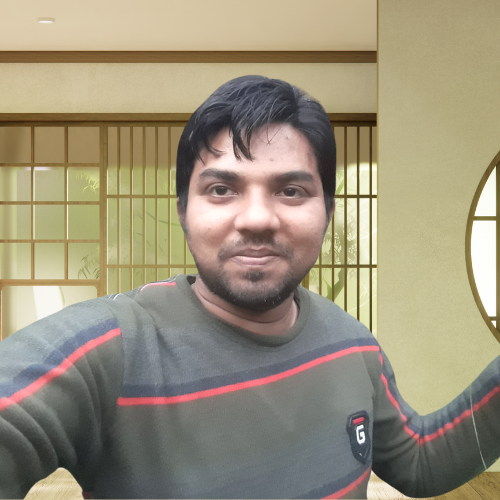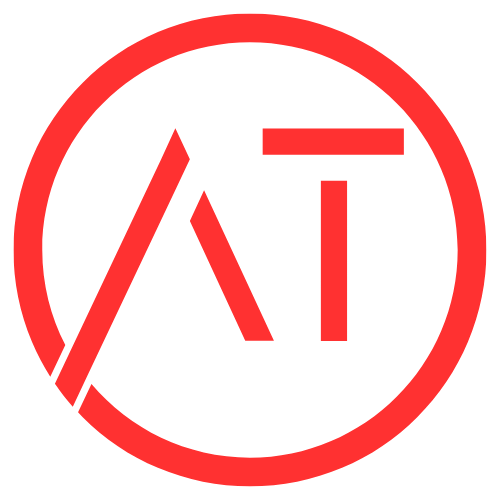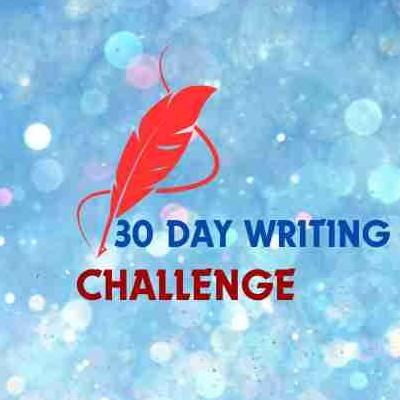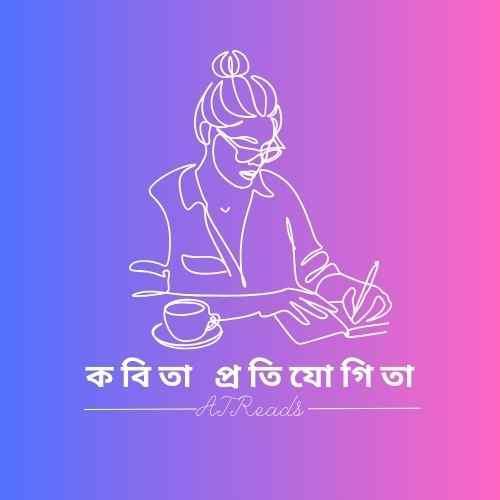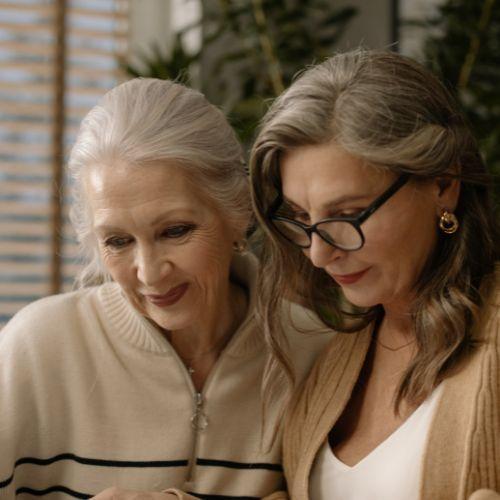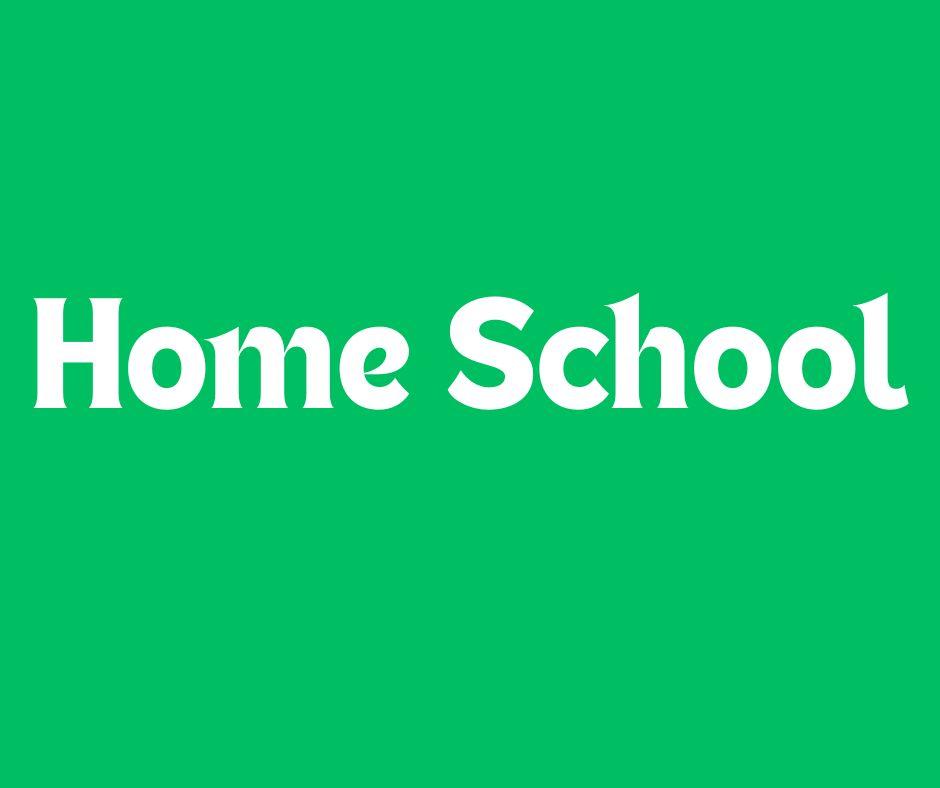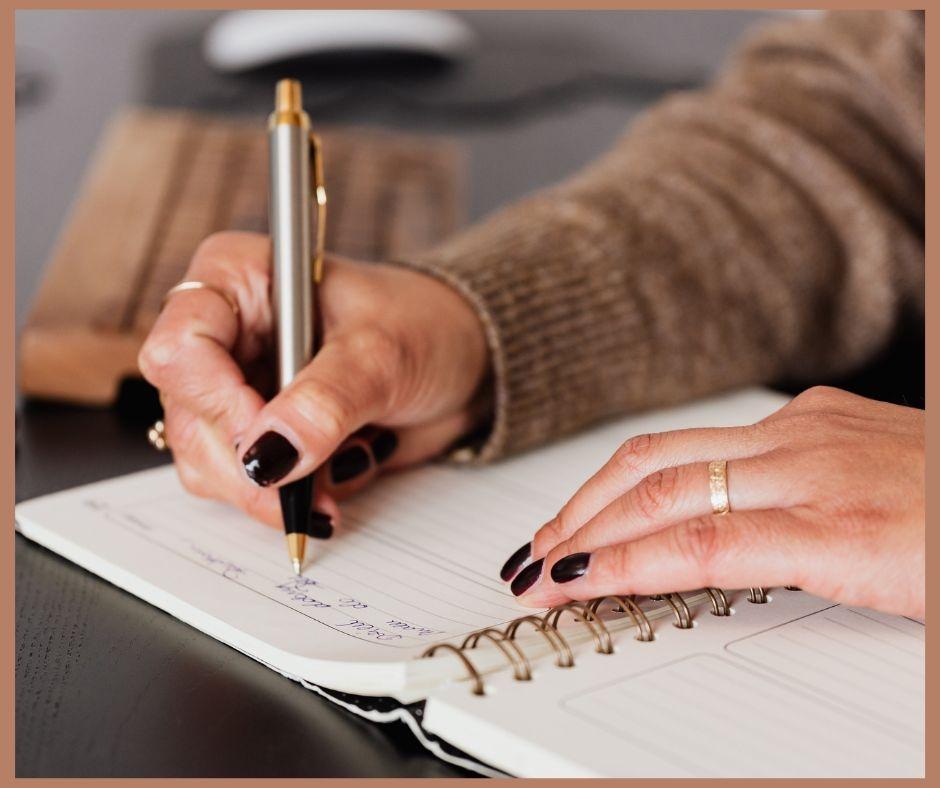-
25 Posts
-
11 Photos
-
0 Videos
-
Lives in Dhaka
-
From Dhaka
-
Female
-
Married
-
10/08/1994
-
Followed by 5424 people
Recent Updates
-
লেখালেখি একটা ধৈর্যের খেলা। আপনি যদি মনে করেন, আপনার বলার মতো কিছু আছে, তবে সেটা লিখে ফেলুন। হয়তো এখনকার পাঠক আপনাকে চিনবে না, হয়তো একদিন কেউ আপনার পুরনো খাতা খুলে বলবে, “এই লেখাটা আমার জীবনে বদলে দিয়েছে।“লেখালেখি একটা ধৈর্যের খেলা। আপনি যদি মনে করেন, আপনার বলার মতো কিছু আছে, তবে সেটা লিখে ফেলুন। হয়তো এখনকার পাঠক আপনাকে চিনবে না, হয়তো একদিন কেউ আপনার পুরনো খাতা খুলে বলবে, “এই লেখাটা আমার জীবনে বদলে দিয়েছে।“0 Comments 0 Shares 6K Views 0 ReviewsPlease log in to like, share and comment!
-
আমি অনেকদিন হোম-স্কুলড ছিলাম। আমার পড়ার সুযোগ ছিল খুব সীমিত। কিন্তু যত বড় হতে থাকলাম, ততই বইয়ের প্রতি আমার ক্ষুধা বেড়ে গেল। আমি হাতের কাছে যা-ই পেতাম, পড়তাম — উপন্যাস, প্রবন্ধ, কবিতা, আত্মজীবনী এমনকি বিজ্ঞানের বইও বাদ যেত না। এই বইগুলোই আমাকে পৃথিবী চিনিয়েছে, আর লেখালেখি আমাকে সেই পৃথিবীর সঙ্গে নিজের সংযোগ তৈরির সুযোগ দিয়েছে।
আমি অনেকদিন হোম-স্কুলড ছিলাম। আমার পড়ার সুযোগ ছিল খুব সীমিত। কিন্তু যত বড় হতে থাকলাম, ততই বইয়ের প্রতি আমার ক্ষুধা বেড়ে গেল। আমি হাতের কাছে যা-ই পেতাম, পড়তাম — উপন্যাস, প্রবন্ধ, কবিতা, আত্মজীবনী এমনকি বিজ্ঞানের বইও বাদ যেত না। এই বইগুলোই আমাকে পৃথিবী চিনিয়েছে, আর লেখালেখি আমাকে সেই পৃথিবীর সঙ্গে নিজের সংযোগ তৈরির সুযোগ দিয়েছে।0 Comments 0 Shares 6K Views 0 Reviews -
বিশ্বাস নিয়ে কিছু কথা।বিশ্বাস শব্দটা মাত্র তিনটি অক্ষরের সমষ্টি হলেও এর ব্যপকতা কতটা তা লিখে বা বলে শেষ করা যাবেনা। একটি মানুষ জন্ম থেকে মৃত্যু পর্যন্ত বিশ্বাসের উপরই বেঁচে থাকে। কখনও নিজের উপর, কখনও পরিবারের উপর, কখনও বন্ধুদের উপর, আবার কখনও বিশ্বস্ততার উপর নির্ভরশীল হয়ে থাকে। জীবন চলার পথে যে বিশ্বাসগুলোর ওপর দাঁড়িয়ে আমরা এগিয়ে চলি, তা কিছুতেই অবমূল্যায়ন করা যায় না। যদি একজন মানুষ তার জীবনের কোনও গুরুত্বপূর্ণ...0 Comments 0 Shares 4K Views 0 Reviews
-
শাড়ি শুধু একটি পোশাক নয়, এটি বাঙালি নারীর আত্মপরিচয়ের এক অনন্য প্রতীক। হাজার বছর ধরে আমাদের সংস্কৃতির সঙ্গে ওতপ্রোতভাবে জড়িয়ে আছে এই ছয় গজের গল্প।
মায়ের আলমারির সযত্নে রাখা জামদানি, দাদির আঁচলে মোড়ানো নকশিকাঁথার মতো শাড়িরও থাকে স্মৃতি, ইতিহাস, ভালোবাসা। ঈদ হোক বা পূজা, বিয়ে হোক বা বরণ, শাড়িই যেন উৎসবের প্রথম আহ্বান।
একেক অঞ্চল, একেক ধরণ—তাঁতের কোমলতা, বেনারসির জাঁকজমক, মুসলিনের ইতিহাস, বা সিল্কের উজ্জ্বলতা—সব মিলিয়ে শাড়ি শুধু রঙে নয়, রুচিতে আর ঐতিহ্যে ভরপুর।
আজকের তরুণীরাও শাড়িতে খুঁজে নিচ্ছেন আত্মবিশ্বাস, নিজের শেকড়ের গর্ব।শাড়ি শুধু একটি পোশাক নয়, এটি বাঙালি নারীর আত্মপরিচয়ের এক অনন্য প্রতীক। হাজার বছর ধরে আমাদের সংস্কৃতির সঙ্গে ওতপ্রোতভাবে জড়িয়ে আছে এই ছয় গজের গল্প। মায়ের আলমারির সযত্নে রাখা জামদানি, দাদির আঁচলে মোড়ানো নকশিকাঁথার মতো শাড়িরও থাকে স্মৃতি, ইতিহাস, ভালোবাসা। ঈদ হোক বা পূজা, বিয়ে হোক বা বরণ, শাড়িই যেন উৎসবের প্রথম আহ্বান। একেক অঞ্চল, একেক ধরণ—তাঁতের কোমলতা, বেনারসির জাঁকজমক, মুসলিনের ইতিহাস, বা সিল্কের উজ্জ্বলতা—সব মিলিয়ে শাড়ি শুধু রঙে নয়, রুচিতে আর ঐতিহ্যে ভরপুর। আজকের তরুণীরাও শাড়িতে খুঁজে নিচ্ছেন আত্মবিশ্বাস, নিজের শেকড়ের গর্ব।0 Comments 0 Shares 6K Views 0 Reviews1
-
PAID POSTLove what you’re reading? Subscribe to my posts to get insights on books, writing, lifelong learning, and creative growth—straight to your feed! 📚✍️ 👉 Click the buy button to stay updated. 👉 Hit Subscribe for exclusive content & discussions.
-
https://www.imdb.com/list/ls591639490/?ref_=ext_shr_lnk
 WWW.IMDB.COMATReadsATReads is a unique social media platform designed specifically for bookworms, writers, readers, publishers, students, educators, and lifelong learners. Founded by Razib Paul in 2019, ATReads aims to bring together people from diverse backgrounds who share a passion for books and knowledge. The platform serves as a vibrant community for book lovers to connect, share, and discover literary works. It offers a space for users to engage in discussions, share book recommendations, and access content that fuels their love for reading. ATReads promotes the idea of lifelong learning and aims to inspire individuals to explore new genres, authors, and topics. ATReads isn't just about reading; it's also a platform for writers to share their work, receive feedback, and grow within a supportive environment. The platform encourages creative expression and helps budding writers and established authors alike to connect with their audience. Some key features of ATReads include: Interactive Community: ATReads allows users to interact with fellow book lovers, authors, and educators, fostering a supportive environment for sharing ideas and opinions. Book Recommendations & Reviews: Users can discover new books, write reviews, and engage in discussions about literary works, expanding their horizons. Writing Platform: Aspiring writers have the chance to showcase their work, join writing challenges, and get feedback from peers and readers. Educational Content: The platform also serves as a space for educational content, where students and learners can access resources for academic growth. ATReads is more than just a social media platform – it's a space where people can come together, share their passion for reading and writing, and create a lasting impact on the literary world. Whether you're a reader looking for your next great book or a writer hoping to share your latest creation, ATReads is the place for you.1 Comments 0 Shares 4K Views 0 Reviews
WWW.IMDB.COMATReadsATReads is a unique social media platform designed specifically for bookworms, writers, readers, publishers, students, educators, and lifelong learners. Founded by Razib Paul in 2019, ATReads aims to bring together people from diverse backgrounds who share a passion for books and knowledge. The platform serves as a vibrant community for book lovers to connect, share, and discover literary works. It offers a space for users to engage in discussions, share book recommendations, and access content that fuels their love for reading. ATReads promotes the idea of lifelong learning and aims to inspire individuals to explore new genres, authors, and topics. ATReads isn't just about reading; it's also a platform for writers to share their work, receive feedback, and grow within a supportive environment. The platform encourages creative expression and helps budding writers and established authors alike to connect with their audience. Some key features of ATReads include: Interactive Community: ATReads allows users to interact with fellow book lovers, authors, and educators, fostering a supportive environment for sharing ideas and opinions. Book Recommendations & Reviews: Users can discover new books, write reviews, and engage in discussions about literary works, expanding their horizons. Writing Platform: Aspiring writers have the chance to showcase their work, join writing challenges, and get feedback from peers and readers. Educational Content: The platform also serves as a space for educational content, where students and learners can access resources for academic growth. ATReads is more than just a social media platform – it's a space where people can come together, share their passion for reading and writing, and create a lasting impact on the literary world. Whether you're a reader looking for your next great book or a writer hoping to share your latest creation, ATReads is the place for you.1 Comments 0 Shares 4K Views 0 Reviews
 6
6
-
শোবিজ তারকাদের সঙ্গে মাদকের সংযোগ: এক অদ্ভুত সমীকরণবিশ্বজুড়ে মাদকাসক্তি এবং তারকাদের সঙ্গে মাদক সংযোগের বিষয়টি অনেক সময়ই আলোচিত ও সমালোচিত হয়ে থাকে। আমাদের দেশেও শোবিজ জগতের মানুষদের নাম প্রায়ই উঠে আসে এই বিতর্কিত ক্যাটাগরিতে। কণ্ঠশিল্পী মাইনুল আহসান নোবেল থেকে শুরু করে চিত্রনায়িকা পরীমণি, একা—সবাই কেউ না কেউ মাদকের সঙ্গে কোনো না কোনোভাবে জড়িত হয়েছেন। এমনকি, সম্প্রতি ছোটপর্দার তারকাদের নামও এ তালিকায় যুক্ত হয়েছে। সাফা কবির,...2 Comments 0 Shares 9K Views 0 Reviews
 7
7
-
ছন্দে শুধু কান রাখো কবিতার কবি ছন্দের প্রতি মনোযোগ দিতে বলেছেন কেন? উত্তরঅজিত দত্তের রচিত "ছন্দে শুধু কান রাখো" কবিতায় কবি ছন্দের প্রতি মনোযোগ দেয়ার আহ্বান জানিয়েছেন কারণ ছন্দের মধ্যে একটি বিশেষ ধ্বনি বা সুর রয়েছে, যা আমাদের জীবনকে সহজ এবং সুন্দর করে তোলে। কবির মতে, ছন্দ শুধুমাত্র একটি সঙ্গীতময় উপাদান নয়, বরং এটি আমাদের জীবনের অনুরণন ও দিকনির্দেশনা। যখন আমরা ছন্দের সূক্ষ্মতা ও চলাচল অনুভব করি, তখন জীবনও তাতেই মুগ্ধ হয় এবং আরও সুরেলা হয়ে ওঠে। এটি আমাদের শেখায় যে,...2 Comments 0 Shares 8K Views 0 Reviews
 8
8
-
ধারণা থেকে শক্তিশালী গল্প বা প্রবন্ধ তৈরি করা।লেখা একটি সৃজনশীল প্রক্রিয়া যা কেবলমাত্র শব্দের ব্যবহার নয়, বরং চিন্তা, অনুভূতি এবং কল্পনার মিলিত ফলস্বরূপ। একটি শক্তিশালী গল্প বা প্রবন্ধ তৈরি করতে হলে, এটি শুধুমাত্র ভালো ভাষা বা চমৎকার বাক্যগঠন নয়, বরং বিভিন্ন কৌশল ও নীতির সমন্বয়ে গড়ে ওঠে। গল্প বা প্রবন্ধের মধ্যে যে মূল ধারণা বা থিম থাকে, তা যদি সঠিকভাবে তৈরি এবং সংগঠিত করা যায়, তবে সেটি পাঠকের মনে গভীর প্রভাব ফেলতে সক্ষম হয়। এই প্রবন্ধে...3 Comments 0 Shares 8K Views 0 Reviews
 7
7
-
সোশ্যাল মিডিয়ার ক্ষতিকর দিকগুলো কী কীসোশ্যাল মিডিয়া আজকের আধুনিক জীবনের অবিচ্ছেদ্য অংশ হয়ে উঠেছে। এটি যেমন মানুষের মধ্যে যোগাযোগ সহজ করেছে, তেমনই এর নেতিবাচক প্রভাবও প্রতিদিন বাড়ছে। ফেসবুক, টুইটার, ইনস্টাগ্রাম, এবং টিকটকের মতো প্ল্যাটফর্মগুলো আমাদের জীবনে গুরুত্বপূর্ণ ভূমিকা পালন করলেও এগুলোর অপব্যবহার আমাদের ব্যক্তিগত, সামাজিক, এবং মানসিক জীবনে ক্ষতি ডেকে আনছে। সোশ্যাল মিডিয়ার ক্ষতিকর দিকগুলো ১. সময়ের অপচয় সোশ্যাল...2 Comments 0 Shares 10K Views 0 Reviews
 7
7
-
ফেইসবুক পেইজের সাথে কতটি সোশ্যাল মিডিয়া লিংক-আপ করা যায়?ফেসবুক পেইজের সঙ্গে বিভিন্ন সোশ্যাল মিডিয়া প্ল্যাটফর্ম লিংক করার সুবিধা রয়েছে, যা আপনার ব্র্যান্ড বা ব্যক্তিগত উদ্যোগকে সহজে পরিচিতি দিতে সহায়ক। তবে, ঠিক কতটি প্ল্যাটফর্ম লিংক-আপ করা যাবে তা নির্ভর করে ফেসবুকের সেটিংস এবং ব্যবহারকারীর চাহিদার উপর। সাধারণত, আপনি নিম্নোক্ত প্রধান প্ল্যাটফর্মগুলো ফেসবুক পেইজের সঙ্গে যুক্ত করতে পারেন: ১. ইনস্টাগ্রাম ইনস্টাগ্রাম হলো ফেসবুকের নিজস্ব...2 Comments 0 Shares 8K Views 0 Reviews
 7
7
-
তরুণদের বইমুখী করতে কাজ করছে যেসব সংগঠনবর্তমান সময়ে তরুণদের মধ্যে বই পড়ার অভ্যাসের প্রতি আগ্রহ দিন দিন কমে যাচ্ছে। তবে, পৃথিবীর বিভিন্ন প্রান্তে এবং বাংলাদেশের মধ্যে অনেক সংগঠন এবং ক্লাব রয়েছে, যারা তরুণদের বই পড়ায় উৎসাহিত করতে কাজ করছে। এরা তাদের কর্মকাণ্ডের মাধ্যমে তরুণদের মধ্যে সাহিত্য, জ্ঞান এবং চিন্তাভাবনার বিকাশ ঘটানোর চেষ্টা করছে। এসব সংগঠন তরুণদের বইমুখী করতে নানা ধরনের কার্যক্রম, বই বিতরণ, আলোচনা সেশন, বই চ্যালেঞ্জ এবং...2 Comments 0 Shares 8K Views 0 Reviews

 7
7
-
লিখিত অংশ ছাড়াও কোন বইয়ের অডিও ভিডিও এনিমেশন ইত্যাদি সংযুক্ত থাকলে তাকে কি বলে?বইয়ের অডিও, ভিডিও, এনিমেশন, এবং অন্যান্য মিডিয়া উপকরণ সংযুক্ত থাকার ক্ষেত্রে, একে সাধারণত মাল্টিমিডিয়া বই (Multimedia Books) বা ইন্টারেকটিভ বই (Interactive Books) বলা হয়। এই ধরনের বইয়ে শুধুমাত্র লিখিত অংশ থাকে না, বরং অডিও, ভিডিও, এনিমেশন, গ্রাফিক্স, এবং অন্যান্য ইন্টারেকটিভ উপাদানও সংযুক্ত থাকে। এদের উদ্দেশ্য হল পাঠকদের পাঠ্যবিষয়টি আরও আকর্ষণীয় এবং সহজে গ্রহণযোগ্য করে তোলা, যাতে তারা...2 Comments 0 Shares 9K Views 0 Reviews

 7
7
-
চার্লস ডিকেন্স এর বাংলা অনুবাদ বইচার্লস ডিকেন্সের বাংলা অনুবাদ বই: সাহিত্যের ধ্রুপদী রূপ চার্লস ডিকেন্স (Charles Dickens) ইংরেজি সাহিত্যের অন্যতম শ্রেষ্ঠ লেখক। তাঁর উপন্যাস এবং ছোটগল্পগুলি শুধুমাত্র ইংরেজি ভাষাভাষীদের মধ্যে জনপ্রিয় নয়, সারা বিশ্বে বিভিন্ন ভাষায় অনূদিত হয়েছে। বাংলা ভাষায় চার্লস ডিকেন্সের সাহিত্য অনুবাদ বিশেষ গুরুত্বপূর্ণ। তাঁর রচনাগুলি শুধু সাহিত্যিক গুরুত্ব বহন করে না; বরং মানবিক মূল্যবোধ, সামাজিক...2 Comments 0 Shares 8K Views 0 Reviews

 7
7
-
এই যুগে বিস্ময় মানেই মোবাইলের স্ক্রিনে নোটিফিকেশন। আর আমরা, সেই প্রাচীন বিস্ময়ের চর্চা ভুলে, ডিজিটাল বিজ্ঞপ্তির দাস হয়ে গেছি। তবু যখন কেউ বলে, “যখন মোবাইল ছিল না, তখন জগদীশচন্দ্র বসু ছিলেন,” তখন মনে হয়—অ্যারে! উনি যে সময়েই থাকুন, তখন হয়তো মোবাইল থাকলেও তিনি হয়তো “প্ল্যান্টস টক অ্যাপ” বানিয়ে ফেলতেন।
আর ই-মেল? রবীন্দ্রনাথ তো ‘ই-পত্র’ লিখলে বিশ্বভারতী হয়তো “ই-পত্রবিশ্ব” নামে স্টার্টআপ খুলে ফেলত! সত্যজিৎ, মৃণাল, ঋত্বিক ইউটিউবে নিজেদের “ডিরেক্টর’স কাট” আপলোড দিয়ে আমরাই বসে বসে লাইক, কমেন্ট, শেয়ার করতাম।
তবে, যেসব বিস্ময়ের কথা বললেন, সেগুলো নিয়ে এখনকার দিনে চুটকি করার মজা কী কম?
- "যখন মেট্রো ছিল না, তখন কবিরা ডবল ডেকারে রাত্রিশাসন করতেন।" এখন হলে হয়তো কবিতার লাইন হত: **“মেট্রোর ভিড়ের ধাক্কা খেয়ে লেখা হল ব্যাগের খাতায়।”**
- আর বিদ্যাসাগরের হাঁটা পথের জায়গায় ওলা বা উবার থাকলে? তিনি নিশ্চয়ই নিজের নামেই অ্যাপ খুলতেন—**“বিদ্যা-সাগর”!**
- লালন ফকির আর সেলফি? হ্যাশট্যাগ হত #লালন_লিভস #আঁকা_দুনিয়ার_প্রথম_সেলফি!
- আর বহুতলবিহীন জসীমউদ্দিনের প্রান্তর? সেখানে আজকাল ১০০ তলা বিল্ডিংয়ের নাম হত: **"জসীম স্কাইটাইম"!**
তাহলে প্রশ্ন—আমরা এগোলাম কীসে?
আমাদের বিস্ময়ের রসায়ন পাল্টেছে। এখন **“ডোরড্যাশে”** পুঁটিরামের সন্দেশ আসে, **“ক্যামেরায়”** ধরা পড়ে অচেনা বটগাছের শিকড়। কিন্তু তাতে বিস্ময়ের স্বাদ কতটা থাকে?
তবু একটা কথা স্বীকার করতে হয়—
যে মোবাইল আমাদের বিস্ময় কেড়ে নিয়েছে, তার মধ্যেই হয়তো লুকিয়ে আছে জগদীশচন্দ্র, রবীন্দ্রনাথ, সত্যজিৎ, হেমন্তদের গল্প। শুধু আমাদের একটু চোখ তুলে তাকানোর অপেক্ষা।
তবু মনে হয়, “আকাশভরা সূর্যতারার নীচে” আমরা এখনও কিছুটা **পাগল জগাই।** আর সেটাই তো ঠিক, তাই না? 😄এই যুগে বিস্ময় মানেই মোবাইলের স্ক্রিনে নোটিফিকেশন। আর আমরা, সেই প্রাচীন বিস্ময়ের চর্চা ভুলে, ডিজিটাল বিজ্ঞপ্তির দাস হয়ে গেছি। তবু যখন কেউ বলে, “যখন মোবাইল ছিল না, তখন জগদীশচন্দ্র বসু ছিলেন,” তখন মনে হয়—অ্যারে! উনি যে সময়েই থাকুন, তখন হয়তো মোবাইল থাকলেও তিনি হয়তো “প্ল্যান্টস টক অ্যাপ” বানিয়ে ফেলতেন। আর ই-মেল? রবীন্দ্রনাথ তো ‘ই-পত্র’ লিখলে বিশ্বভারতী হয়তো “ই-পত্রবিশ্ব” নামে স্টার্টআপ খুলে ফেলত! সত্যজিৎ, মৃণাল, ঋত্বিক ইউটিউবে নিজেদের “ডিরেক্টর’স কাট” আপলোড দিয়ে আমরাই বসে বসে লাইক, কমেন্ট, শেয়ার করতাম। তবে, যেসব বিস্ময়ের কথা বললেন, সেগুলো নিয়ে এখনকার দিনে চুটকি করার মজা কী কম? - "যখন মেট্রো ছিল না, তখন কবিরা ডবল ডেকারে রাত্রিশাসন করতেন।" এখন হলে হয়তো কবিতার লাইন হত: **“মেট্রোর ভিড়ের ধাক্কা খেয়ে লেখা হল ব্যাগের খাতায়।”** - আর বিদ্যাসাগরের হাঁটা পথের জায়গায় ওলা বা উবার থাকলে? তিনি নিশ্চয়ই নিজের নামেই অ্যাপ খুলতেন—**“বিদ্যা-সাগর”!** - লালন ফকির আর সেলফি? হ্যাশট্যাগ হত #লালন_লিভস #আঁকা_দুনিয়ার_প্রথম_সেলফি! - আর বহুতলবিহীন জসীমউদ্দিনের প্রান্তর? সেখানে আজকাল ১০০ তলা বিল্ডিংয়ের নাম হত: **"জসীম স্কাইটাইম"!** তাহলে প্রশ্ন—আমরা এগোলাম কীসে? আমাদের বিস্ময়ের রসায়ন পাল্টেছে। এখন **“ডোরড্যাশে”** পুঁটিরামের সন্দেশ আসে, **“ক্যামেরায়”** ধরা পড়ে অচেনা বটগাছের শিকড়। কিন্তু তাতে বিস্ময়ের স্বাদ কতটা থাকে? তবু একটা কথা স্বীকার করতে হয়— যে মোবাইল আমাদের বিস্ময় কেড়ে নিয়েছে, তার মধ্যেই হয়তো লুকিয়ে আছে জগদীশচন্দ্র, রবীন্দ্রনাথ, সত্যজিৎ, হেমন্তদের গল্প। শুধু আমাদের একটু চোখ তুলে তাকানোর অপেক্ষা। তবু মনে হয়, “আকাশভরা সূর্যতারার নীচে” আমরা এখনও কিছুটা **পাগল জগাই।** আর সেটাই তো ঠিক, তাই না? 😄2 Comments 0 Shares 4K Views 0 Reviews
 7
7
-
মার্কিন মহাকাশ গবেষণা কেন্দ্র নাসায় টিপু সুলতানের একটি ভাস্কর্য রয়েছে, কারণ তিনি ছিলেন যুদ্ধে ক্ষেপণাস্ত্র ব্যবহারের উদ্ভাবক। সাধারণভাবে মানুষ তাকে মহিশুরের সুলতান বললেও, প্রকৃতপক্ষে টিপু এবং তার বাবা হায়দার আলী মহিশুরের সুলতান ছিলেন না। তবে তাদের অবদান দক্ষিণ ভারতের এই ক্ষুদ্র রাজ্যটিকে ঐতিহাসিকভাবে গুরুত্বপূর্ণ করে তুলেছিল।
ভারতের ইতিহাসে টিপু সুলতান ও সম্রাট অশোকের নাম আজও সম্মানের সঙ্গে উচ্চারিত হয়। কর্ণাটকের মুসলমানরা টিপুকে শ্রদ্ধাভরে "হজরত টিপু সুলতান" বলে ডাকে, এবং হিন্দুরাও তাকে সম্মান করে। ব্রিটিশদের একমাত্র পরাজিত করার কৃতিত্ব টিপু ও হায়দার আলীর। চার দশক ধরে তারা মহিশুরের ক্ষমতাধর শাসক ছিলেন, যার ফলে মহিশুর ভারতের সবচেয়ে শক্তিশালী রাজ্যে পরিণত হয়েছিল।
টিপু সুলতানের পূর্বপুরুষদের মধ্যে একজন, ফতে মোহাম্মদ, সিরার নবাবের দরবারে উচ্চ পদে অধিষ্ঠিত ছিলেন। কিন্তু প্রতিপক্ষের ষড়যন্ত্রে তাকে হত্যা করা হয়। তার স্ত্রী মাজেদা বেগম সংগ্রাম করে দুই পুত্র শাহবাজ ও হায়দার আলীকে দাসত্ব থেকে মুক্ত করেন, যার মাধ্যমে তাদের জীবনের নতুন অধ্যায় শুরু হয়।মার্কিন মহাকাশ গবেষণা কেন্দ্র নাসায় টিপু সুলতানের একটি ভাস্কর্য রয়েছে, কারণ তিনি ছিলেন যুদ্ধে ক্ষেপণাস্ত্র ব্যবহারের উদ্ভাবক। সাধারণভাবে মানুষ তাকে মহিশুরের সুলতান বললেও, প্রকৃতপক্ষে টিপু এবং তার বাবা হায়দার আলী মহিশুরের সুলতান ছিলেন না। তবে তাদের অবদান দক্ষিণ ভারতের এই ক্ষুদ্র রাজ্যটিকে ঐতিহাসিকভাবে গুরুত্বপূর্ণ করে তুলেছিল। ভারতের ইতিহাসে টিপু সুলতান ও সম্রাট অশোকের নাম আজও সম্মানের সঙ্গে উচ্চারিত হয়। কর্ণাটকের মুসলমানরা টিপুকে শ্রদ্ধাভরে "হজরত টিপু সুলতান" বলে ডাকে, এবং হিন্দুরাও তাকে সম্মান করে। ব্রিটিশদের একমাত্র পরাজিত করার কৃতিত্ব টিপু ও হায়দার আলীর। চার দশক ধরে তারা মহিশুরের ক্ষমতাধর শাসক ছিলেন, যার ফলে মহিশুর ভারতের সবচেয়ে শক্তিশালী রাজ্যে পরিণত হয়েছিল। টিপু সুলতানের পূর্বপুরুষদের মধ্যে একজন, ফতে মোহাম্মদ, সিরার নবাবের দরবারে উচ্চ পদে অধিষ্ঠিত ছিলেন। কিন্তু প্রতিপক্ষের ষড়যন্ত্রে তাকে হত্যা করা হয়। তার স্ত্রী মাজেদা বেগম সংগ্রাম করে দুই পুত্র শাহবাজ ও হায়দার আলীকে দাসত্ব থেকে মুক্ত করেন, যার মাধ্যমে তাদের জীবনের নতুন অধ্যায় শুরু হয়।2 Comments 0 Shares 4K Views 0 Reviews 7
7
-
🧠 **How Did a Generation Become So Stupid?**
The rise of instant gratification, social media echo chambers, and the devaluation of expertise have all contributed to a generation that's often more concerned with superficial trends than substantive knowledge.
But how did we get here? 🤔
1. **The Overload of Information**: We're bombarded with data, but without the tools to sift through it critically, we end up knowing a little about a lot—often misinformed rather than informed.
2. **The Decline of Reading**: Deep reading is on the decline, replaced by quick skims and sound bites. This shift away from in-depth engagement with complex ideas weakens our ability to think deeply and critically.
3. **The Echo Chamber Effect**: Social media algorithms feed us what we want to hear, not what we need to know. This creates a feedback loop of reinforcement rather than challenge, dulling our capacity for critical analysis.
4. **The Devaluation of Expertise**: In a world where every opinion is given equal weight, the voice of true expertise is often drowned out. This erosion of respect for specialized knowledge undermines our collective understanding.
The question now is, how do we reverse this trend?
📚 **Encourage Deep Learning**: Promote the importance of reading, questioning, and engaging with diverse perspectives.
🔍 **Foster Critical Thinking**: Teach and practice the skills needed to critically evaluate the information we encounter.
🌍 **Embrace Intellectual Humility**: Acknowledge the limits of our knowledge and be open to learning from those who know more.
It’s time to reclaim the lost art of thinking critically and valuing true expertise. The future depends on it.
#CriticalThinking #Education #GenerationGap #Knowledge🧠 **How Did a Generation Become So Stupid?** The rise of instant gratification, social media echo chambers, and the devaluation of expertise have all contributed to a generation that's often more concerned with superficial trends than substantive knowledge. But how did we get here? 🤔 1. **The Overload of Information**: We're bombarded with data, but without the tools to sift through it critically, we end up knowing a little about a lot—often misinformed rather than informed. 2. **The Decline of Reading**: Deep reading is on the decline, replaced by quick skims and sound bites. This shift away from in-depth engagement with complex ideas weakens our ability to think deeply and critically. 3. **The Echo Chamber Effect**: Social media algorithms feed us what we want to hear, not what we need to know. This creates a feedback loop of reinforcement rather than challenge, dulling our capacity for critical analysis. 4. **The Devaluation of Expertise**: In a world where every opinion is given equal weight, the voice of true expertise is often drowned out. This erosion of respect for specialized knowledge undermines our collective understanding. The question now is, how do we reverse this trend? 📚 **Encourage Deep Learning**: Promote the importance of reading, questioning, and engaging with diverse perspectives. 🔍 **Foster Critical Thinking**: Teach and practice the skills needed to critically evaluate the information we encounter. 🌍 **Embrace Intellectual Humility**: Acknowledge the limits of our knowledge and be open to learning from those who know more. It’s time to reclaim the lost art of thinking critically and valuing true expertise. The future depends on it. #CriticalThinking #Education #GenerationGap #Knowledge2 Comments 0 Shares 7K Views 0 Reviews 7
7
-
🚀 **Write it, then read it aloud** 📖🎙️
In an ever-evolving digital landscape, writers and creators are discovering powerful new ways to connect with their audiences: by using their own voices.
✨ **Why it works:**
- **Authenticity**: Hearing an author read their work brings a unique, personal touch that resonates deeply with listeners.
- **Engagement**: Audiobooks, podcasts, and live readings allow for a more immersive experience, keeping audiences engaged and coming back for more.
- **Accessibility**: For many, listening is more convenient than reading, expanding the reach to a wider audience.
💡 **How to get started:**
1. **Record yourself**: Start with short pieces. Use simple recording tools and focus on clarity and emotion.
2. **Share widely**: Use platforms like YouTube, SoundCloud, and social media to share your readings.
3. **Engage with feedback**: Listen to your audience’s feedback to improve and adapt your content.
By blending written and spoken word, we can create richer, more intimate connections with our readers. Ready to give it a try?
#WritingCommunity #VoiceMatters #ContentCreation #Engagement #Audiobooks #Podcasts #DigitalStorytelling🚀 **Write it, then read it aloud** 📖🎙️ In an ever-evolving digital landscape, writers and creators are discovering powerful new ways to connect with their audiences: by using their own voices. ✨ **Why it works:** - **Authenticity**: Hearing an author read their work brings a unique, personal touch that resonates deeply with listeners. - **Engagement**: Audiobooks, podcasts, and live readings allow for a more immersive experience, keeping audiences engaged and coming back for more. - **Accessibility**: For many, listening is more convenient than reading, expanding the reach to a wider audience. 💡 **How to get started:** 1. **Record yourself**: Start with short pieces. Use simple recording tools and focus on clarity and emotion. 2. **Share widely**: Use platforms like YouTube, SoundCloud, and social media to share your readings. 3. **Engage with feedback**: Listen to your audience’s feedback to improve and adapt your content. By blending written and spoken word, we can create richer, more intimate connections with our readers. Ready to give it a try? #WritingCommunity #VoiceMatters #ContentCreation #Engagement #Audiobooks #Podcasts #DigitalStorytelling2 Comments 0 Shares 16K Views 0 Reviews 7
7
-
📚✍️ **Keep Your Reading Journey Alive with a Physical Reading Journal!** 📖✨
Are you looking to deepen your reading experience? Why not start a reading journal? Here's how:
1. **Choose Your Journal**: Find a journal that speaks to you. It could be a beautiful notebook, a bullet journal, or a simple notebook — whatever suits your style!
2. **Start with a Title Page**: Dedicate the first page to your reading journal's title. Get creative with it!
3. **Log Your Reads**: After finishing a book, jot down its title, author, and date completed.
4. **Reflect & Review**: Write down your thoughts, feelings, and reflections about the book. What did you like? What didn't you? Any favorite quotes?
5. **Track Your Progress**: Keep track of your reading goals, challenges, and progress.
6. **Get Creative**: Add doodles, sketches, or stickers to make your journal uniquely yours.
7. **Index Your Entries**: Leave space for an index so you can easily find your notes later.
Remember, a reading journal is not just about keeping track of what you read, but also about deepening your connection with books. Happy reading! 📖✨ #ReadingJournal #BookLovers #Journaling📚✍️ **Keep Your Reading Journey Alive with a Physical Reading Journal!** 📖✨ Are you looking to deepen your reading experience? Why not start a reading journal? Here's how: 1. **Choose Your Journal**: Find a journal that speaks to you. It could be a beautiful notebook, a bullet journal, or a simple notebook — whatever suits your style! 2. **Start with a Title Page**: Dedicate the first page to your reading journal's title. Get creative with it! 3. **Log Your Reads**: After finishing a book, jot down its title, author, and date completed. 4. **Reflect & Review**: Write down your thoughts, feelings, and reflections about the book. What did you like? What didn't you? Any favorite quotes? 5. **Track Your Progress**: Keep track of your reading goals, challenges, and progress. 6. **Get Creative**: Add doodles, sketches, or stickers to make your journal uniquely yours. 7. **Index Your Entries**: Leave space for an index so you can easily find your notes later. Remember, a reading journal is not just about keeping track of what you read, but also about deepening your connection with books. Happy reading! 📖✨ #ReadingJournal #BookLovers #Journaling2 Comments 0 Shares 11K Views 0 Reviews 7
7
-
Whether you're an author or a reader, here are some questions that might spark interesting discussions:
For Authors:
What inspired you to become a writer?
How do you develop your characters and their personalities?
What is your writing process like? Do you have a specific routine or ritual?
How do you handle writer's block or lack of inspiration?
Do you draw inspiration from real-life experiences, or is your writing purely imaginative?
What genres do you enjoy writing the most, and why?
How do you balance creating a compelling plot with developing rich, complex characters?
Do you have a favorite among the books you've written? If so, which one and why?
How important is reader feedback to you, and how do you deal with both positive and negative reviews?
What advice do you have for aspiring authors?
For Readers:
What attracts you to a particular book or author?
How do you choose your next read?
Do you have a favorite genre, or do you like exploring different ones?
How has reading influenced your worldview or personal growth?
Do you prefer physical books, e-books, or audiobooks? Why?
What book(s) have had a profound impact on you and why?
How do you feel about book-to-movie adaptations?
Do you participate in book clubs or online reading communities? Why or why not?
What is your reading routine like? Do you have a favorite time or place to read?
If you could recommend one book to everyone, what would it be and why?
#Question_for_Authors_and_ReadersWhether you're an author or a reader, here are some questions that might spark interesting discussions: For Authors: What inspired you to become a writer? How do you develop your characters and their personalities? What is your writing process like? Do you have a specific routine or ritual? How do you handle writer's block or lack of inspiration? Do you draw inspiration from real-life experiences, or is your writing purely imaginative? What genres do you enjoy writing the most, and why? How do you balance creating a compelling plot with developing rich, complex characters? Do you have a favorite among the books you've written? If so, which one and why? How important is reader feedback to you, and how do you deal with both positive and negative reviews? What advice do you have for aspiring authors? For Readers: What attracts you to a particular book or author? How do you choose your next read? Do you have a favorite genre, or do you like exploring different ones? How has reading influenced your worldview or personal growth? Do you prefer physical books, e-books, or audiobooks? Why? What book(s) have had a profound impact on you and why? How do you feel about book-to-movie adaptations? Do you participate in book clubs or online reading communities? Why or why not? What is your reading routine like? Do you have a favorite time or place to read? If you could recommend one book to everyone, what would it be and why? #Question_for_Authors_and_Readers2 Comments 0 Shares 15K Views 0 Reviews 6
6
More Stories



